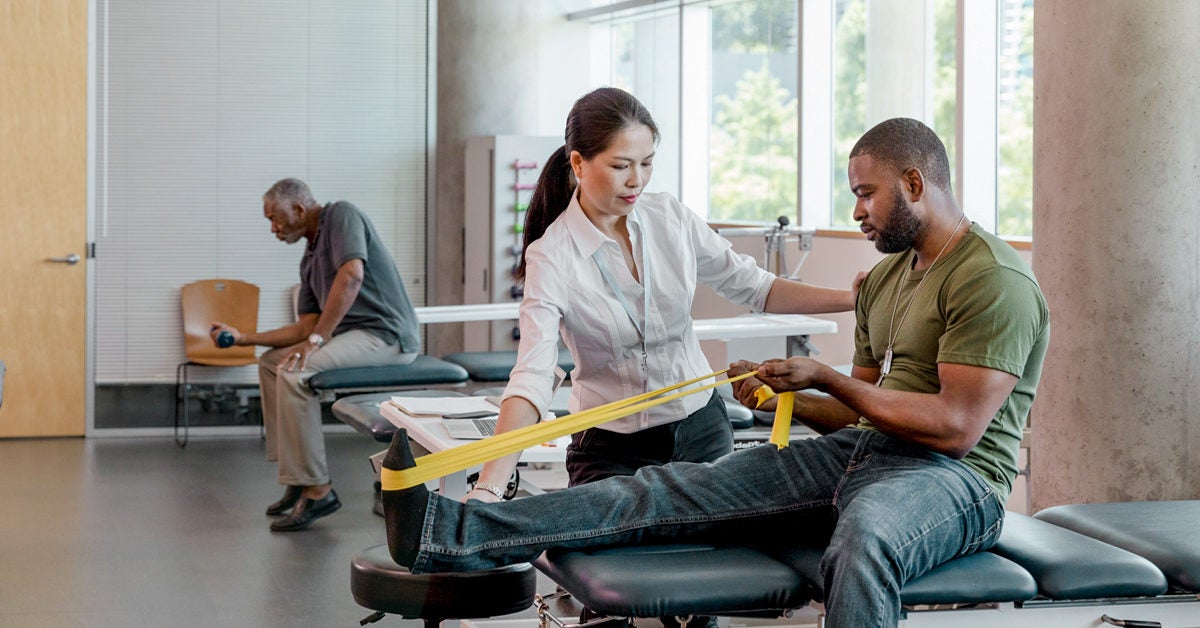Physical Therapy Benefits: 10 Reasons

All ages of people can benefit from physical therapy if they have medical conditions, illnesses, or injuries that prevent them from moving and functioning normally.
Through a customized physical therapy program, individuals can return to their prior level of functioning and facilitate activities and lifestyle changes that can prevent further injury and improve overall health and well-being. Since physiotherapy clinics in Glasgow are considered a conservative approach to managing problems, doctors frequently refer their patients to it at the first sign of a problem. Consider these 10 benefits:
- Eliminate or reduce pain. The use of therapeutic exercises and manual therapy techniques such as joint and soft tissue mobilization, taping, or electrical stimulation can relieve pain and restore muscle and joint function. Moreover, these techniques can reduce the likelihood of future pain.
- Avoid surgery. You may not need surgery if physical therapy helps you eliminate pain or recover from an injury. Whether or not you need surgery, physical therapy may be beneficial before the surgery. It is likely that you will recover faster after surgery if you go into it stronger and in better shape. Also, by avoiding surgery, health care costs can be reduced.
- Improve mobility. Physical therapy can help you if you have trouble standing, walking, or moving, regardless of your age. Exercises that stretch and strengthen your muscles help you move more freely. A physical therapist can properly fit an individual with a cane, crutches, or other assistive device, or can assess for orthotic prescriptions. Customizing an individual’s care plan allows all activities that are important to their lives to be practiced and adapted to ensure maximum performance and safety.

- Stroke recovery. After a stroke, it’s common to lose some function and movement. Strengthening weakened parts of the body and improving gait and balance are the goals of physical therapy. Furthermore, physical therapists can improve stroke victims’ ability to transfer and move around in bed so that they are more independent at home, and reduce their burden of care for toileting, bathing, dressing, and other activities of daily living.
- Prevent or recover from sports injuries. The physical therapist is aware of how different sports can increase your risk for specific types of injury (such as stress fractures in distance runners). In order to ensure a safe return to your sport, they can design appropriate recovery or prevention exercise programs for you.
- Prevent falls by improving your balance. Before you begin physical therapy, you will be screened for fall risks. A therapist will provide you with exercises that challenge your balance in a safe and careful manner as a way to simulate real-life situations if you are at high risk for falls. The therapists can also provide exercises to improve coordination and assistive devices to help you walk more safely.
- Take care of diabetes and vascular conditions. When incorporated into an overall diabetes management strategy, exercise can help effectively control blood sugar. People with diabetes may also have trouble feeling their feet and legs. Physical therapists can provide and educate patients on proper foot care to prevent further problems.
- Managing age-related issues. Individuals may develop arthritis or osteoporosis as they age or need joint replacements as they age. Physical therapists are experts at helping patients recover from joint replacements and manage osteoarthritis or osteoporosis conservatively.
- Maintain a healthy heart and lungs. After a heart attack or surgery, patients may complete cardiac rehabilitation, but they may also receive physical therapy if their daily functioning has been affected. The benefits of physical therapy for pulmonary problems include strengthening, conditioning, and breathing exercises, as well as helping patients to eliminate fluid from their lungs.
- Take care of women’s health and other conditions. Women face specific health concerns, such as during pregnancy and postpartum. Women’s health issues can be managed by physical therapists with special training. Furthermore, PT can provide specialized treatment for: Bowel incontinence, breast cancer, constipation, fibromyalgia, lymphedema, male pelvic health, pelvic pain, and urinary incontinence.

 Finding the Best Teen Mental Health Facility in Phoenix
Finding the Best Teen Mental Health Facility in Phoenix  Unleashing Your Ultimate Performance: How Dr. Sue’s Sport Hypnotherapy Transforms the Game
Unleashing Your Ultimate Performance: How Dr. Sue’s Sport Hypnotherapy Transforms the Game  Get Help for Your Teen: Understanding the Importance of Teen Mental Health Therapy
Get Help for Your Teen: Understanding the Importance of Teen Mental Health Therapy  Semaglutide Pills for Diabetic Patients and its role in Weight Management
Semaglutide Pills for Diabetic Patients and its role in Weight Management  How and When Must Drug Companies Participate in the 340B Program?
How and When Must Drug Companies Participate in the 340B Program?  What You Need to Know About Bacterial Infections: Causes, Symptoms & Treatment
What You Need to Know About Bacterial Infections: Causes, Symptoms & Treatment  Your Guide to Finding the Best Deck Companies in Markham
Your Guide to Finding the Best Deck Companies in Markham  How Acupuncture Can Help Support Fertility and Wellbeing
How Acupuncture Can Help Support Fertility and Wellbeing  Sciatica Relief Options on Long Island: A Comprehensive Guide
Sciatica Relief Options on Long Island: A Comprehensive Guide  Step-by-Step Guide to Cloning an Appealing Voice with AI for Promo Videos
Step-by-Step Guide to Cloning an Appealing Voice with AI for Promo Videos